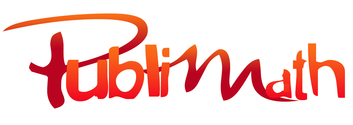History and Epistemology in Mathematics Education. An interdisciplinary approach to the second quantum revolution for educating to probabilistic thinking: the random walk case. p. 490-495.
(Une approche interdisciplinaire de la deuxième révolution quantique pour l'éducation à la pensée probabiliste : le cas de la marche aléatoire.)
Une version texte intégral est en téléchargement sur le site Bibliothèque numérique des IREM et de l’APMEP Télécharger
Auteurs : Sara Satanassi Sara ; Levrini Olivia
Résumé
Les technologies quantiques, exploitant les capacités d’isolement, de contrôle et de manipulation d’un objet quantique unique et de ses propriétés, donnent à la physique quantique une nouvelle perspective et offrent de nouvelles possibilités d’enseignement et d’apprentissage. Cette contribution présente une approche de la Deuxième Révolution quantique et, en particulier, une activité sur les marches aléatoires, classique et quantique, conçues pour faire la lumière sur les progrès scientifiques et technologiques en cours et sur leur réalisation ainsi que pour aborder certains des débats fondateurs et épistémologiques les plus importants tels que les différences entre la probabilité épistémique et ontologique et le véritable hasard qui caractérise la physique quantique. Abstract Today more than ever we live in an accelerated society in continuous change (Rosa, 2013), an uncertain society in which we have to understand how to manage risk and contingencies. It is therefore pivotal to find new words, a new vocabulary and new competencies that can better help us to grapple with the contemporary society and provide the new generations with them. The physics of the ‘900, like quantum physics and science of complex systems, has proved particularly rich in this perspective as well as the technological revolutions in progress such as the Second Quantum Revolution at the heart of many investments today. Quantum technologies, exploiting the
capabilities of isolating, controlling, and manipulating the single quantum object and its properties, give to quantum physics a new perspective and provide new teaching and learning possibilities. In this contribution, we present an approach to the Second Quantum Revolution and, in particular, an activity on classical and quantum random walk designed to shed light on the ongoing scientific and technological advancement and in its making as well as to touch on some of the most important foundational and epistemological debates such as the differences between the epistemic and ontological probability, and the true randomness that characterize quantum physics.
Notes
Chapitre des Actes de la neuvième université d’été (ESU 9)
Données de publication
Éditeur Edizioni Nuova Cultura Rome , 2023 Format p. 490-495 Index Bibliogr. p. 494-495
ISBN 88-3365-601-2 EAN 9788833656014
Public visé chercheur, enseignant, formateur
Type chapitre d’un ouvrage Langue anglais Support papier
Classification
